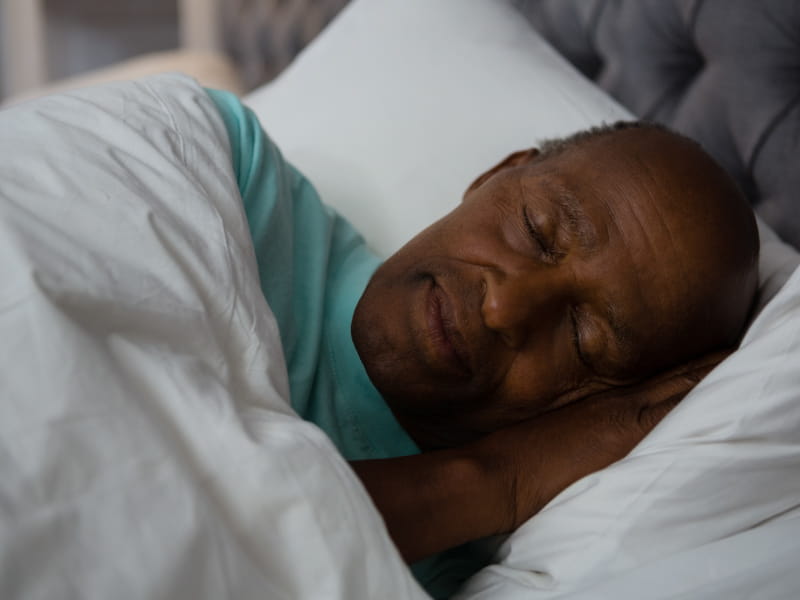The dangers of sleep deprivation
By the American Heart Association

Most people are familiar with the obvious consequences of sleep deprivation – the heavy eyelids, short attention spans and excessive yawning after a poor night's sleep.
But there are more consequences of meager sleep than people realize. Research shows skimping on sleep is linked to numerous health problems, including stroke, obesity and Alzheimer's disease.
"It's like with diet, every cell in the body benefits from food in some way," said Michael Grandner, director of the Sleep and Health Research Program at the University of Arizona College of Medicine in Tucson. "Sleep is similar in that way. The whole body (benefits)."
Just one night of sleep deprivation can lead to accumulation in the brain of the beta amyloid protein, a key component in risk for Alzheimer's disease, according to a 2018 study. Researchers found signs of the protein in the hippocampus, which plays a major role in forming new memories and is one of the first areas affected by Alzheimer's.
There also is evidence that lack of sleep contributes to excess body weight. One study found people who slept fewer than seven hours each night were more likely to have a higher average body mass index and develop obesity than those who slept more. Sleep restriction also was associated with salt retention and inflammatory markers.
"Sleep plays many roles and is involved in most regulatory systems in the body," Grandner said. "This includes everything from how cells transport glucose to manage energy, to how the immune system recognizes tissue for repair."
Sleep disorders have been recognized in recent years as health factors that can increase the risk for heart attack and stroke. A 2018 study found sleep disorders, particularly sleep apnea, are prevalent among people at risk for stroke. Another recent study found people who slept fewer than six hours a night – compared with those who slept six to nine hours – had a 20% higher risk of heart attack.
One-third of U.S. adults get less sleep than they should, which also has been linked with Type 2 diabetes and depression, according to the Centers for Disease Control and Prevention. Not getting enough sleep also can cause injury and death through car crashes and workplace mistakes.
It is possible to suffer a sleep disorder without realizing it, Grandner said.
"A lot of sleep disorders are underdiagnosed and undertreated," he said. "If you're concerned about your sleep, it's important to see a specialist."
Some common sleep disorders include:
- Insomnia – the inability to fall asleep and stay asleep through the night
- Sleep apnea – causes interruptions through breathing irregularities
- Restless leg syndrome – causes "creeping" sensations and aches in the lower legs
However, inability to sleep is not always a medical problem. It could simply be a matter of poor sleep hygiene, such as bad habits that lead to later bedtimes and insufficient sleep, said Marie-Pierre St-Onge, director of Columbia University Irving Medical Center's Sleep Center of Excellence.
"Maintaining good sleep hygiene and a stable schedule helps regulate cycles – not staring at a phone or computer right until you go to bed, for example," she said. "Looking at your emails before bedtime not only shines light in your eyes that disrupt sleep signals but can also cause some stress. Thinking about the next day's task may prevent you from falling asleep."
Drinking coffee late in the day can be a culprit as well, she said. Life stressors can carry over into nighttime, too.
"People working multiple jobs, struggling with work-life balance sometimes struggle," she said. "We're also seeing that children and adolescents aren't getting enough sleep, which is why there's been this push to delay school start times so they can get more sleep at night."
But for those having trouble getting proper sleep, there are ways to make improvements, Grandner said. He stressed the importance of winding down before bedtime to get the body prepared for rest, comparing the practice to slowing down a car before taking an exit off a highway.
He recommends keeping a regular sleep schedule, avoiding food too late at night, and getting out of bed to walk around if sleep is not coming immediately.
"Busy professional people are very distracted during the day, and they hope their brain is like a light switch you can turn off whenever you want to," Grandner said. "A lot of people need to think about giving themselves enough time to wind down. They should see their sleep as an investment in the next day's productivity and potential."
This article was developed by the American Heart Association with financial support from Transamerica.
If you have questions or comments about this story, please email [email protected].





